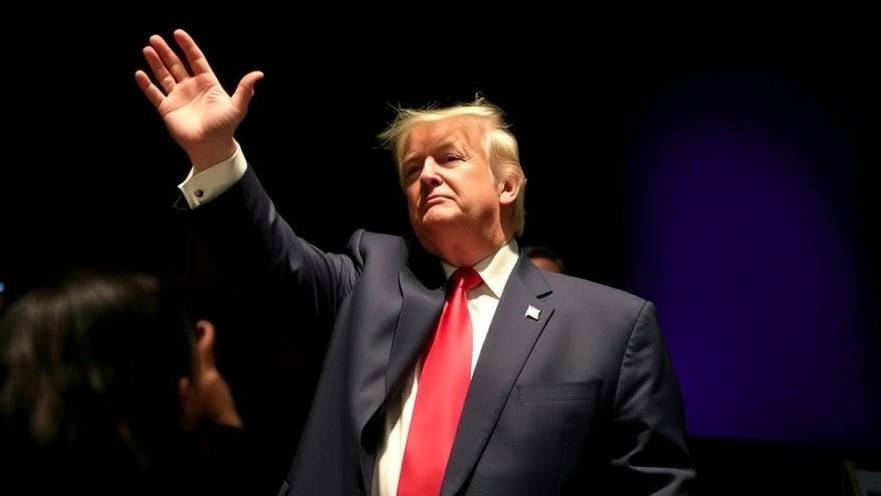
Challenging the Status Quo: An Unfolding Lawsuit Against NEA
The National Endowment for the Arts (NEA) is at the center of a heated debate following a lawsuit filed by several arts organizations against the agency's enforcement of President Donald Trump's controversial executive order. This directive, which prohibits federal funds from being used to promote what is termed "gender ideology," has sparked accusations of unconstitutional censorship against artists, particularly those advocating for LGBTQ+ rights.
A Ripple Effect Across the Arts Community
Vera Eidelman, a senior staff attorney at the American Civil Liberties Union (ACLU), emphasized the grim implications of this directive on artistic expression, calling it a "gag on artists’ speech." According to the complaint, the NEA's updated policies—which now include a requirement for grant applicants to pledge they will not use federal funds to promote gender ideology—have had immediate repercussions, limiting opportunities for creativity that supports transgender and non-binary artists.
Unpacking the Executive Order
On his first day in office, Trump issued a sweeping executive order titled “Defending Women from Gender Ideology Extremism and Restoring Biological Truth to the Federal Government.” This order not only resulted in the implementation of restrictive guidelines at the NEA but also reflected a broader agenda aimed at redefining gender in strict terms—male and female—dismissing the existing spectrum of gender identities.
Constitutional Implications of the NEA's Policy
The plaintiffs, which include organizations such as the National Queer Theater and the Theatre Offensive, argue that the NEA's restrictions infringe upon their First Amendment rights. The lawsuit contends that federal funding should be predicated solely on "artistic excellence and merit," with no additional ideological hurdles placed upon applicants. As the groups seek judicial relief, they claim the vagueness of the gender ideology policy forces them into a position of uncertainty, stifling their artistic output.
Wider Context in the Arts and Politics
This lawsuit is not occurring in a vacuum; it reflects ongoing tensions in American politics regarding LGBTQ+ rights and artistic freedom. In recent years, there has been an alarming trend of attempts to politicize and control cultural institutions, as evidenced by Trump's recent actions, including his controversial appointment as chair of the John F. Kennedy Center for the Performing Arts. This power move is viewed as a blatant attempt to stifle dissenting creative expressions, particularly those that celebrate diversity and inclusion.
Future Trends: Will Art Flourish or Wither?
As this case unfolds, it raises critical questions about the future of arts funding and artistic expression in America. Should government entities have the authority to dictate what constitutes acceptable art? The outcome could set a precedent for how federal money is allocated across the arts, potentially limiting the voices of marginalized communities while prioritizing a singular, government-approved narrative.
Call to Action: Supporting Artistic Freedom
The complexity of this issue merits engagement from the public and advocacy from fellow artists and audiences alike. Supporting organizations that promote artistic freedom is crucial. Whether through attending performances, sharing art by diverse creators, or contributing to legal funds for the artists challenging these political maneuvers, everyone can play an integral role in ensuring that cultural expression remains robust and varied.
 Add Row
Add Row  Add
Add 




Write A Comment